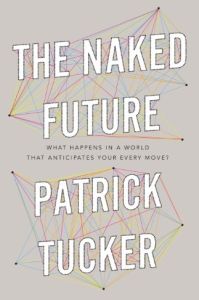Join getAbstract to access the summary!

Join getAbstract to access the summary!
Patrick Tucker
The Naked Future
What Happens In a World That Anticipates Your Every Move?
Current, 2014
What's inside?
What if your phone could predict that there’s a 90% chance that you’ll like this book?
Recommendation
Patrick Tucker, editor at large of The Futurist, covers climate change, falling in love, crime, education, business, innovation, health and earthquakes. He shows how the application of big data and telemetry improve scientific predictions in each of these areas. Big data empowers corporations and governments, but it can leave the average citizen feeling powerless, digitized and under surveillance. However, Tucker demonstrates, big data also offers positive possibilities for individuals. He can be too rosy at times and he provides too little discussion of how his different topics interact, but even so getAbstract recommends his intriguing thesis to readers interested in social change, technology, cyberculture, individual autonomy or futurism.
Summary
About the Author
Patrick Tucker is technology editor for Defense One. Tucker’s writing on emerging technology also has appeared in Slate, The Sun, MIT Technology Review, Wilson Quarterly, BBC News Magazine, Utne Reader and other publications.
















Comment on this summary